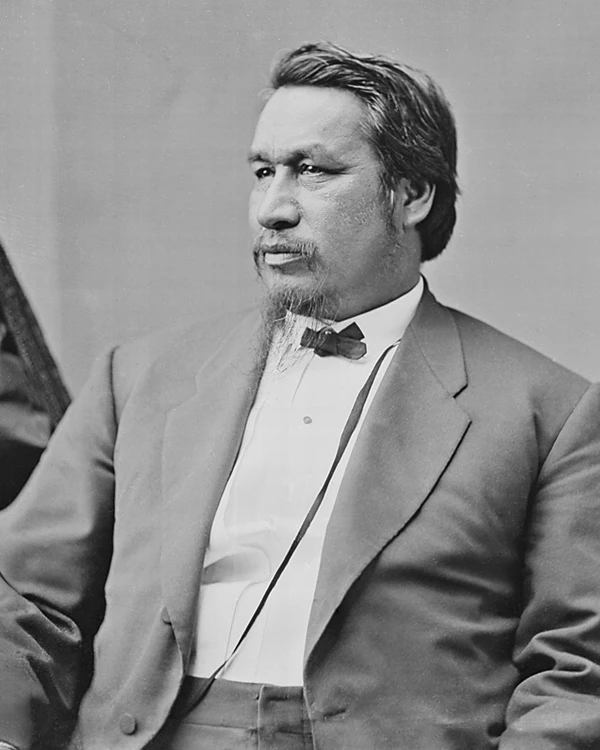Last updated: May 30, 2024
Person
Ely Parker

U.S. National Archives
Ely Samuel Parker (born with the Native American name Hasanoanda and later known as Donehogawa) was a student of law, civil engineer and Seneca Indian leader who was a valuable informant of such well-known early anthropologists as Lewis Henry Morgan, Henry Rowe Schoolcraft and John Wesley Powell.
In 1863, through the intersession of acquaintance Ulysses S. Grant, Parker was appointed an engineer in the Army of the Tennessee. When Grant became commander of the Military Division of the Mississippi, Parker was selected as Grant's adjutant. Parker then accompanied Grant to Washington after Grant was appointed Chief of the Armies. In late 1864, Parker was appointed Military Secretary to Grant with the rank of lieutenant colonel.
He was present at the surrender of the Army of Northern Virginia where he helped draft the surrender documents and render them in his own hand. At the time of the surrender, General Robert E. Lee is said to have mistaken Parker for a black man, but apologized saying, "I am glad to see one real American here," to which Parker responded, "We are all Americans, sir."
Parker was brevetted a brigadier general of volunteers on April 9, 1865 and continued to serve as Grant's secretary until the general's retirement from the army in 1869. Grant created a sensation in 1871 when he appointed Parker the nation's first Native American Commissioner of Indian Affairs. Caught up in scandal, Parker resigned his office after only two years and accepted a modest position with the New York City Police Department. He died in poverty in 1895.
